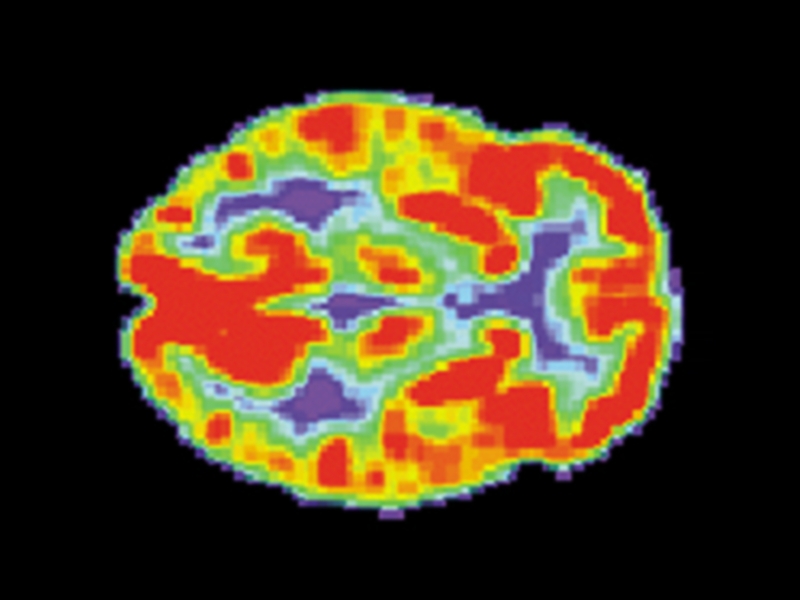Testosterone Levels Not Associated with Stroke Risk, Study Shows

Testosterone levels don’t affect a man’s risk of stroke, according to new research.
Scientists from Johns Hopkins University School of Medicine presented their findings in March at the annual meeting of the Endocrine Society, held in San Diego, California.
A stroke happens when blood cannot reach the brain. Most strokes are caused by blood clots, but some occur when a blood vessel bursts. When the blockage is temporary, the stroke is called a transient ischemic attack (TIA) or “mini-stroke.”
For this study, the researchers examined data from 1,558 men with an average age of 63. The men were part of a larger, ongoing study that began in 1987.
The group was evaluated for heart disease between 1996 and 1998. They also had their testosterone levels checked.
At that time, none of them had a history of heart problems or stroke and none had ever had testosterone replacement therapy. A subgroup of men had MRI scans of the brain between 2011 and 2013. Overall, the men were followed for a median of fourteen years.
After analyzing all the information, the researchers concluded that there was no association between the men’s testosterone levels and stroke. They also found no link between testosterone and blood vessel problems in the brains of men who had had MRIs.
Men who have questions about testosterone and stroke should speak to their doctor. If you have symptoms of a stroke, such as numbness on one side of the body, confusion, headache, or vision problems, get medical treatment immediately.
Resources
Endocrine Society
Srinath, Reshmi, MD, et al.
“Association Between Endogenous Testosterone and Incident Stroke and Ischemic Changes on Brain MRI in Men in the Atherosclerosis Risk in Communities (ARIC) Cohort”
(Abstract presented at the Endocrine Society's 97th Annual Meeting and Expo, March 7, 2015, San Diego, California)
http://press.endocrine.org/doi/abs/10.1210/endo-meetings.2015.RE.15.OR34-3
MedlinePlus
“Stroke”
(Last updated: April 15, 2015)
You may also be interested in...
Other Popular Articles

What Is the Average Penis Size?
If you have ever wondered how your penis compares to others in terms of size, you are not alone. Many men are curious to know how their penises stack up compared to the average. Unfortunately, general curiosity can sometimes give way to full-on obsession and anxiety about penis size. This can be an unhealthy and often unnecessary fixation, especially because most men who think their penises are too small have perfectly normal-sized penises.

What Is Jelqing, and Does It Actually Work?
The term “jelqing” refers to a set of penis stretching exercises that some believe can make the penis bigger. Although the practice has gained attention and popularity in blogs and internet forums in recent years, there is no scientific evidence that it is an effective way to permanently increase the size of one’s penis. In fact, in some cases, jelqing may actually cause damage to the penis, so it is a good idea to get all the facts before setting off to try it.

What Is Sensate Focus and How Does It Work?
Sensate focus is a technique used to improve intimacy and communication between partners around sex, reduce sexual performance anxiety, and shift away from ingrained, goal-oriented sexual patterns that may not be serving a couple.

Can Sex Reduce Menstrual Cramps?
The SMSNA periodically receives and publishes ‘guest editorials.’ The current article was submitted by Mia Barnes, a freelance writer and researcher who specializes in women's health, wellness, and healthy living. She is the Founder and Editor-in-Chief of Body+Mind Magazine.
Having sex while you experience menstrual cramps is healthy and can provide significant benefits. While it might not be the first activity that comes to mind when your PMS or period cramping begins, many people enjoy sex to reduce menstrual cramps, experience increased pleasure and benefit from other advantages. Learn more about having sex while menstrual cramps are happening and how it can help your body.

How Long Does It Take the Average Man to Ejaculate?
On average, it takes a man between 5 to 7 minutes to orgasm and ejaculate during sexual intercourse.

Can Sex Throw off Your Vaginal pH Balance?
The SMSNA periodically receives and publishes ‘guest editorials.’ The current article was submitted by Mia Barnes, a freelance writer and researcher who specializes in women's health, wellness, and healthy living. She is the Founder and Editor-in-Chief of Body+Mind Magazine.
Your vagina is a pretty powerful organ. It is a pathway for menstrual blood and babies. It also is a main player in sexual intercourse. You might hear about your vagina’s pH and worry that yours is at risk. Here’s what to know about vaginal pH, including the impacts sex could have.
You are prohibited from using or uploading content you accessed through this website into external applications, bots, software, or websites, including those using artificial intelligence technologies and infrastructure, including deep learning, machine learning and large language models and generative AI.

